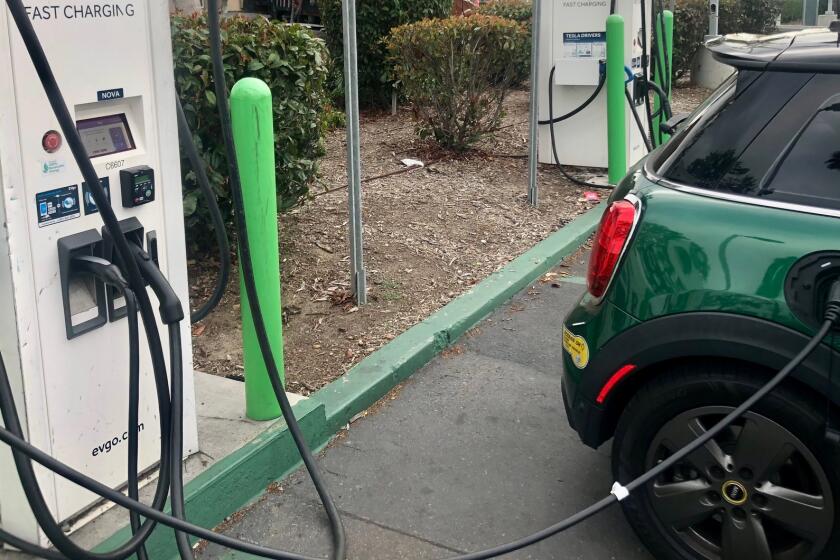The pain-at-the-pump blame game
With average gas prices approaching $4 nationally and already above that in California, American consumers are watching their hard-earned dollars go down the gas tank. For President Obama, that’s not great news because voters hate high gasoline prices.
According to a Reuters/Ipsos survey conducted in March, when prices were about where they are now, 68% of Americans disapproved of Obama’s handling of gas prices.
Republicans have since pounced, arguing that gasoline prices have more than doubled under his leadership. Obama has responded that Republicans like bad economic news for political reasons and are happy when Americans pay more at the pump; other Democratic leaders, such as Montana Gov. Brian Schweitzer, say that blaming the president for gas prices is “baloney.”
But why have oil prices risen from about $36 a barrel in December 2008 to more than $90 now? And will they come down before the presidential election?
To understand oil prices, you need to understand something basic: They are determined mainly by the combined behavior of oil traders on markets such as the New York Mercantile Exchange. When oil traders believe that oil prices will rise, they buy oil futures in hopes of selling them later for a profit. Such buying increases oil prices and, eventually, the price of derivatives, such as gasoline and heating oil.
The good news is that oil prices have risen partly because traders increasingly believe that the U.S. economy will not face a double-dip recession. And, for now, Europe seems to be addressing its debt crisis, or at least decreasing the chances that major countries will default and banks will go under Lehman Bros.-style. That’s making it less likely that Europe will drag down the global economy.
The Iran nuclear crisis is also in play. Oil traders figure that Iran may well stonewall the international community, leading to an Israeli or U.S. attack on its nuclear sites and a conflict that will disrupt oil supplies.
Of course, the Arab Spring and recent riots over an anti-Muslim video have also put the markets on edge, creating concern that such instability may cause oil delivery disruptions.
And let’s not forget the relatively weak dollar. As long as the Federal Reserve keeps interest rates low to bolster the economy, the dollar is not likely to rally. Because oil is traded mainly in dollars, that raises its price.
Another factor is that oil prices were four to five times higher in the last decade than in the mid-1980s through the 1990s. That indicates possible higher speculation. In that type of market, traders buy oil futures to make a quick sale rather than to actually possess oil. Such speculation arguably has periodically driven prices higher.
Will oil prices come down before the election? Perhaps, but probably not by a lot.
Politically, the wild card is Iran. A diplomatic or military resolution would lower oil prices. Saudi Arabia’s extra oil capacity, which otherwise is being held in reserve to defray any loss of oil from Iran during a war, could also be freed for other potential crises, calming markets. But the chances of a resolution before Nov. 6 appear slim.
For its part, oil speculation will probably continue unless significant curbs are placed on speculators, which may or may not work depending on how they are implemented. There have been no serious moves in that direction, despite the president’s prodding.
Economically, oil prices will surely drop if the U.S., European and Chinese economies weaken, despite efforts to stimulate them, but that is unlikely to be very clear before the election. Nor are serious changes in the strength of the dollar very likely.
So Obama may well be blamed for high gasoline prices, even though presidents have little control over them, contrary to what many think.
Steve Yetiv is a professor of international studies at Old Dominion University and the author of “Crude Awakenings” and “The Petroleum Triangle.”
More to Read
A cure for the common opinion
Get thought-provoking perspectives with our weekly newsletter.
You may occasionally receive promotional content from the Los Angeles Times.










